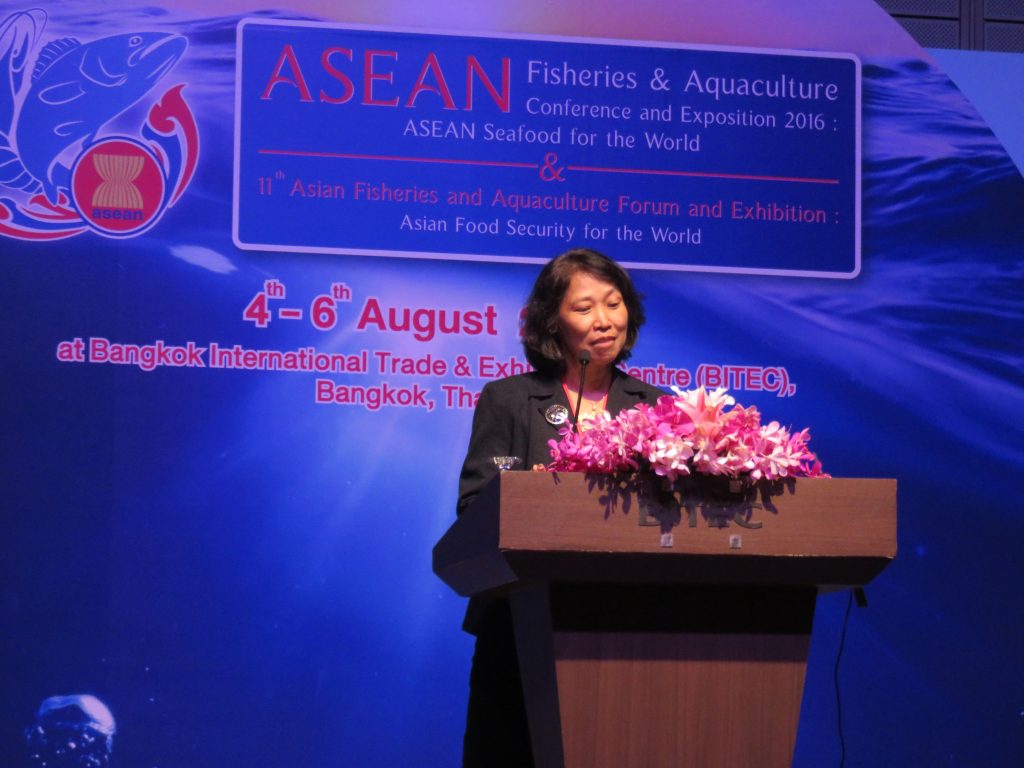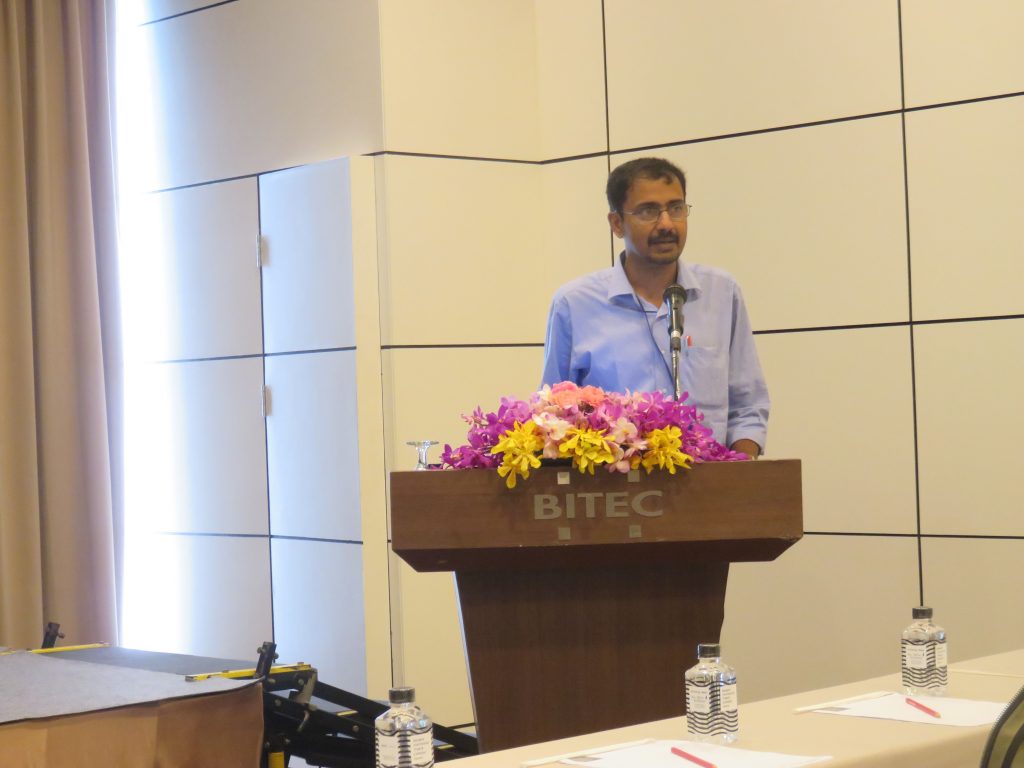As part of the 11th annual ASEAN Fisheries and Aquaculture Conference and Exposition held in Bangkok, Thailand from August 4-6, 2016 TBTI chaired two special sessions. The governance session, titled, Current Governance Issues in the Inland Fisheries of the Asia Pacific was moderated by TBTI Inland cluster coordinators, Dr. Andrew Song (James Cook University, Australia) and Shannon Bower (Carleton University, Canada). The session on food security, titled, Small-scale and Food Security: Cross Pollination and Synthesis was chaired by Dr. Ratana Chuenpagdee (TBTI Project Director).
I. TBTI Session on Current Governance Issues in the Inland Fisheries of Asia-Pacific
Participants discussed themes arising in inland fisheries governance, some of which were unique to specific fisheries, others which created a thread of common themes in inland fisheries governance. Despite the diversity of settings discussed (rivers, lakes, reservoirs, deltas), talks highlighted similarities including:
- The need for multiscale cooperation in SSF governance. Participants described a number of existing forms of cooperation, such as community cooperatives, as well as the need for increased cooperation and better coordination among governance agencies at multiple scales.
- Changes to and losses of livelihood in SSF. Many participants noted that decreased catches, increased reliance on aquaculture, and various other forms of decreased participation are leading to widespread changes in the long term sustainability of SSF and the manner in which fishers participate, for example, fishers are increasingly employed as aquaculture workers.
- Realized and potential inter- and intra-sectoral conflicts and threats to SSF. Many participants described circumstances wherein SSF fishers were experiencing access and spatial conflicts with other resource users, including other fishing sectors (commercial, recreational), and other forms of extraction, such as sandmining.
Many presenters offered case study perspectives based on submissions to the TBTI Inland Fisheries cluster ebook, ‘Inter-sectoral governance of Inland Fisheries’. These case studies included examples from India, Myanmar, Thailand, Lake Chiuta (Malawi/Mozambique), Lake Kariba (Zambia/Zimbabwe), Bangladesh, and Nigeria. The session was moderated by TBTI Inland Cluster coordinators, Dr. Andrew Song (James Cook University, Australia) and Shannon Bower (Carleton University, Canada). In addition, Dr. Song wrapped up the event by delivering a presentation touching on common themes and lessons learned through TBTI Inland Cluster activities.
II. TBTI Session on Emerging Governance Issues and Food Security in Fisheries
Much like the previous session on governance issues in inland fisheries, TBTI session on the role of fisheries in food security was well attended, and participants were highly engaged in questions and discussions on the following topics:
- Increasing food insecurity. Case studies suggest that fish especially small pelagics and those from inland fishery can provide an excellent solution for obtaining the essential micro- and macro-nutrients to alleviate poor nutrition.
- Increased attention to the role of fish in food security policy as opposed to the current exclusive focus on rice. In Africa, this would call for protecting nutritionally important species for local consumption, rather than reducing it to animal feed.
- The need for income from domestic and foreign trade. This often compromises the food and nutritional requirements of the poor. For example, small-scale fishers retain only a small portion of their catches for household consumption and local market causing fish as food to become less accessible locally
Presentations for these two sessions can be found at:
http://enaca.org/publications/workshops-and-proceedings/11afaf/11afaf-programme.pdf



















